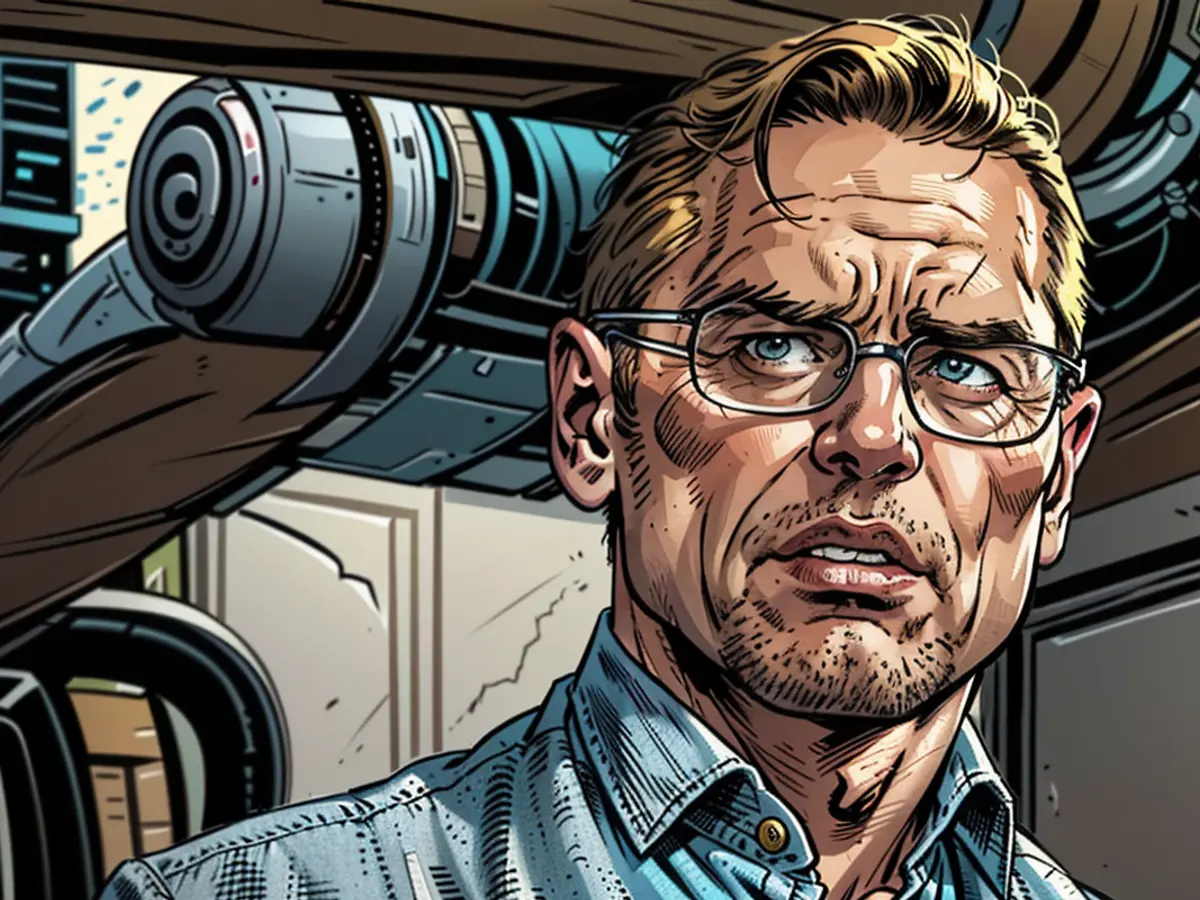The Influential CDU Mediator in Thuringia: An Examination of Ramelow's Role
In Thuringia, the political landscape is currently stuck. If the CDU and BSW refuse to negotiate with the AfD, they're left with limited options. If CDU leader Voigt plans to form an alliance with the SPD and BSW, he falls short by one vote in the state parliament. This vote could potentially come from the Left, possibly from Bodo Ramelow.
The notion of Germany's most prominent leftist, Bodo Ramelow, potentially holding the key to a potential CDU minister-president in Thuringia is generating buzz. Following the state election, which resulted in intricate majority relations and an AfD victory, speculation is high regarding Ramelow's potential role as a majority provider.
A coalition that CDU leader Mario Voigt aims for, in alliance with Sahra Wagenknecht and the SPD, totals 44 votes in the state parliament in Erfurt - 88 seats, which is at least one vote short.
"It's all poppycock"
Rumors are circulating among Thuringian state politicians and party board meetings that Ramelow could, in the name of his frequently emphasized "civic duty," depart from the Left faction and serve as a majority provider for the fragile alliance of his potential successor. Alternatively, the 68-year-old could, as a directly elected MP of the Left, consistently abstain from voting.
"I'm merely recounting the absurd concepts circulating," certain state politicians mention behind closed doors, excitedly repeating the rumors. "It's all poppycock, it's all nonsense," Ramelow responds, clearly frustrated, in Erfurt. "It's an audacity to spread rumors sans substance. I forbid any speculation."
He will neither depart from his party or faction nor, as an individual, provide majorities through abstention or other actions, Ramelow stated. And he added, "Neither will anyone else from the Left faction switch." He is neither a "private citizen nor a one-man show." And he will never violate parliamentary rules.
"I will do everything to ensure a majority government is formed"
However, he also makes interpretable statements during these tumultuous days in Thuringia. When questioned by "Der Spiegel" about the missing vote for the potential alliance of the rival parties CDU, BSW, and SPD, he said, "One vote is right in front of you."
And he repeatedly emphasizes that, based on his experience with his minority coalition of red-red-green, he cannot recommend a minority government. Red-Red-Green was voted out on Sunday.
Moreover, Ramelow offered support for government formation on election night - "if desired by the other parties." "I will do everything to ensure a majority government is formed." Or: "I am ready for solutions and do not participate in exclusionism."
Whether this could also mean tolerating a potential three-party coalition under CDU leadership remains unclear. Or does he mean a majority government with the Left's participation, which has 12 seats in the state parliament? Thuringia's Left leader Ulrike Grande-Roethig at least calls for a review of the CDU's incompatibility resolution - this currently applies to both AfD and Left.
"I don't need to speculate," says Ramelow, adding that it's up to Voigt to initiate talks with the democratic parties. The CDU, with the most seats (23), has the mandate to form the government. His Left Party is ready to talk, "if Mr. Voigt calls."
The 47-year-old Voigt wants to initially speak with BSW and SPD, with Ramelow probably only about the 2025 draft budget first. Former Thuringia CDU Minister-President Christine Lieberknecht at least advocated for talks with the Left. "You can't get around the Left, even for a tolerance. That's mathematics - nothing else," she told the Redaktionsnetzwerk Deutschland (RND).
Moderator Role in Coalition Poker
The Jena political scientist Torsten Oppelland considers a coalition of CDU, BSW, and SPD - a unique model in Germany - feasible. "On the state political level, the political differences between the CDU and the Wagenknecht party are not that substantial," he says.
Ultimately, the situation is comparable to Ramelow's 2020 coalition, which didn't have a majority. There was at least a one-year stability pact with the CDU. A Left Party tolerance of a CDU-led government is not a necessity. "But in the end, that's what it will come down to," believes Oppelland.
And what role does Ramelow envision for himself? Initially, he remains Minister-President until a new government is in office, likely serving in that capacity until the new parliament is constituted at the end of September. Ramelow, unlike Voigt and AfD's far-right leader Björn Höcke, won his constituency directly and plans to take up his mandate as an MP.
In the coalition talks, the experienced politician, former trade union official, and railway arbitrator Ramelow can envision a moderating role. "Yes, if it's desired. I can try to bring the parties to the table," says Ramelow. The first challenge will be electing a Landtag President, with the right to propose a candidate belonging to the strongest party - the AfD.
The Commission, being a part of the parliamentary rules and procedures, could potentially issue a statement on the rumors circulating among Thuringian state politicians, addressing the audacity of spreading unsubstantiated rumors.
Following the coalition negotiations, if a majority government is not formed, The Commission might be involved in overseeing the formation of a minority government or even a caretaker government, ensuring that all parliamentary rules and procedures are followed.








